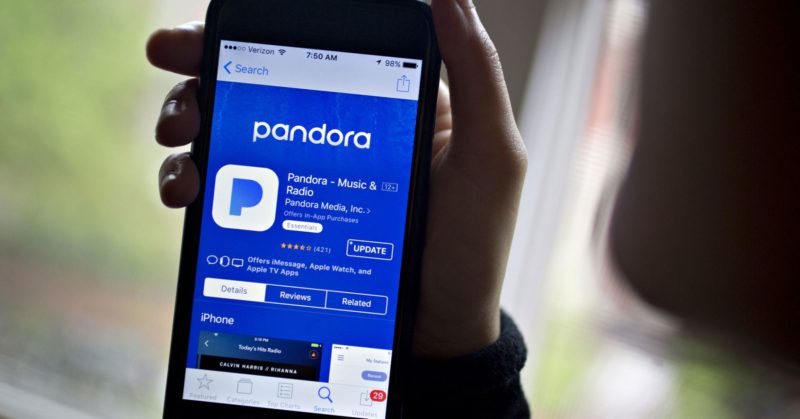Music streaming services like Pandora will not have to pay higher royalties to the copyright owners of the songs they stream, the D.C. Circuit ruled Tuesday (Sept. 18).
The court rejected a challenge from an organization representing musicians that argued the federal Copyright Royalty Board had set standard royalty rates too low. In an opinion by Judge Srinivasan, joined by Judges Rogers and Griffith, the court upheld various decisions of the board that resulted in the royalty rates being set at roughly two-tenths of a penny for each time a song is played through an online streaming service.
The case, SoundExchange, Inc. v. Copyright Royalty Board, deals with “non-interactive,” radio-style streaming services that control which songs a listener hears. Under the Copyright Act, song recordings are subject to a statutory license regime that allows streaming companies to play songs without permission from the copyright owners. In return, a streaming company must pay a predetermined royalty to a copyright owner each time a songs is played. (In contrast, “interactive” streaming services, like Spotify and Apple Music, which allow listeners to play songs on demand, are covered by private licensing agreements and are not affected by this case.)
Every five years, the Copyright Royalty Board, which consists of three copyright judges appointed by the Librarian of Congress, sets the standard royalty rates that will apply if streaming companies and copyright owners do not reach voluntary licensing agreements among themselves. For the period from 2016 to 2020, the board set the standard royalty for ad-based commercial streaming services at $0.0017 per song, and it set the standard rate for subscription-based streaming services at $0.0022 per song.
SoundExchange, an organization that collects and distributes royalties to the rights holders of song recordings, challenged the board’s rates as too low. It argued that the board, in calculating a reasonable range for the standard rates, used improper “benchmarks,” which were based in part on rates negotiated in the private market for comparable services. The board accepted a benchmark suggested by two streaming companies—Pandora and iHeartMedia—while making a downward adjustment to a competing benchmark suggested by SoundExchange.
The D.C. Circuit upheld the board’s methodology. Because the rate-setting is a “highly technical” exercise, the decisions of the copyright board get significant deference, Srinivasan wrote. Employing that deference, the court sustained all aspects of the board’s decision-making.
Not all of the court’s deference, however, was automatic. In perhaps the most interesting part of the opinion, the court considered whether the copyright board’s legal interpretation of a provision of the Copyright Act was entitled to Chevron deference. It normally would be subject to Chevron, Srinivasan wrote, but the government lawyers oddly failed to invoke the doctrine in their briefing. Had the government forfeited its ability to obtain deferential Chevron review?
The D.C. Circuit ruled last year in Neustar, Inc. v. FCC that, in some circumstances, an agency can forfeit Chevron deference, but Srinivasan distinguished that case from this one. Srinivasan wrote that, because the copyright board had demonstrated an intent to engage “in the kind of interpretive exercise to which review under Chevron generally applies,” the board was entitled to the usual deference despite the failure to invoke the doctrine on appeal. He went on to find, under Chevron, that the board’s chosen interpretation—which resulted in a lower royalty rate than SoundExchange preferred—was reasonable.
![]()

